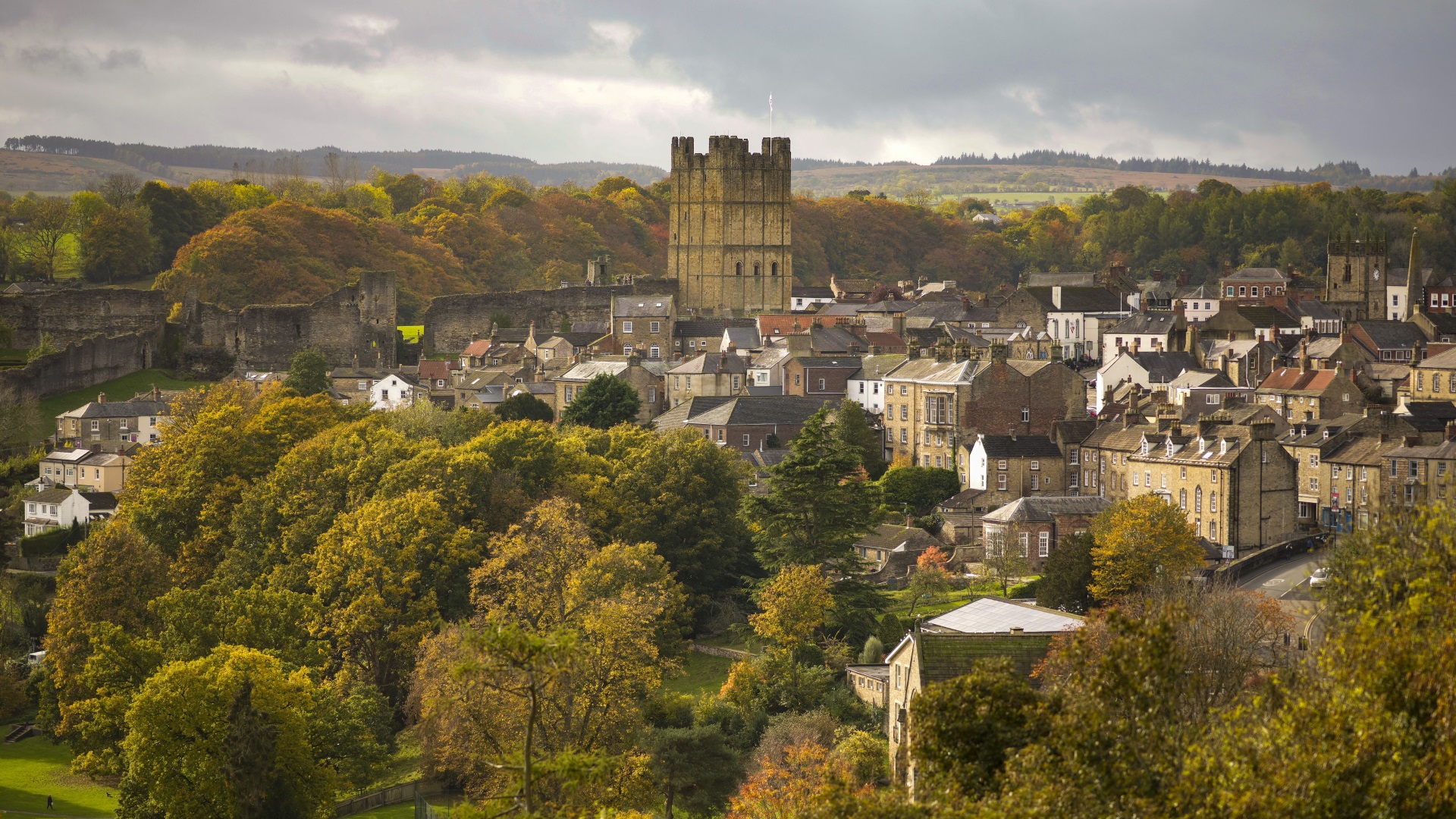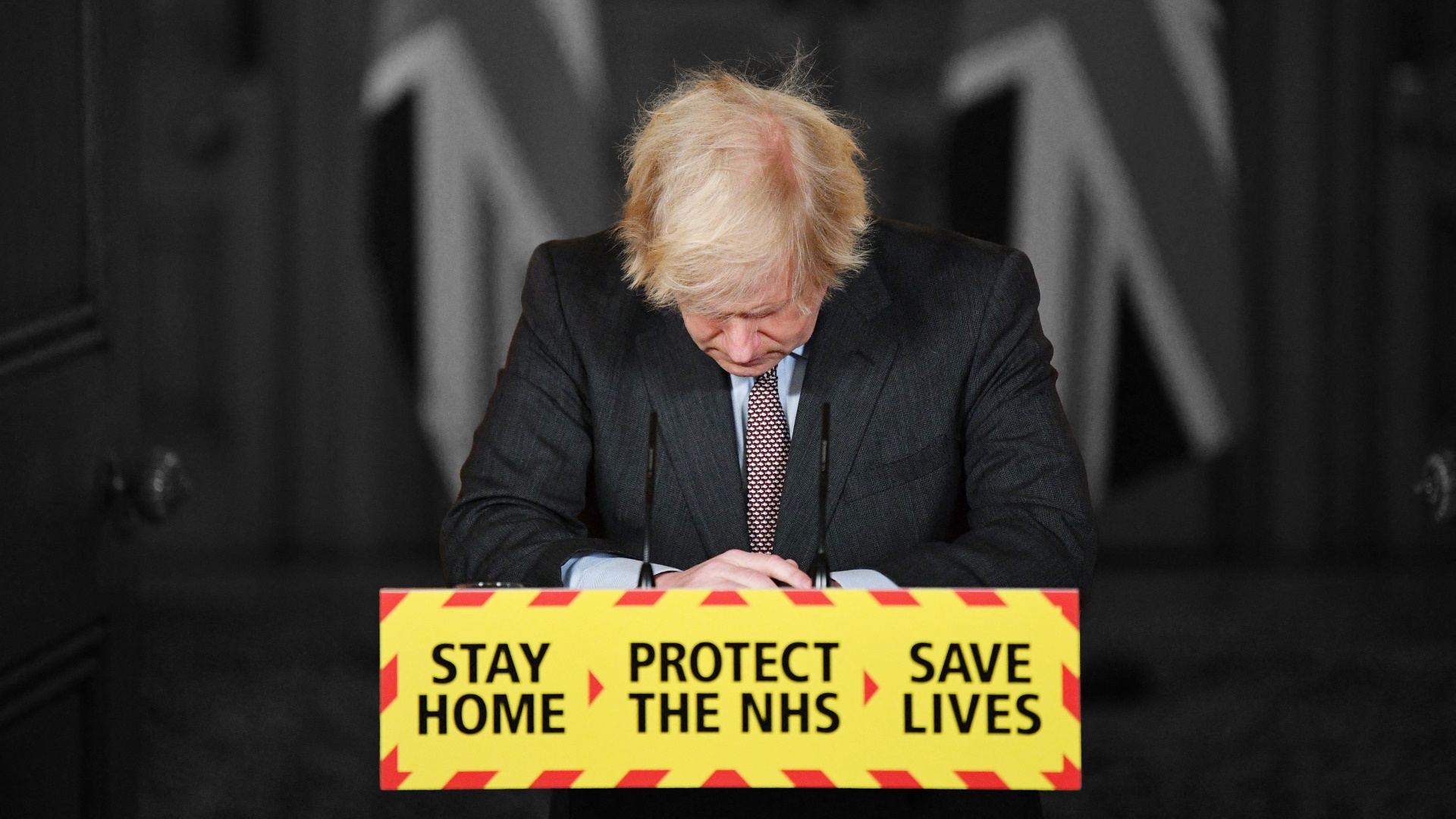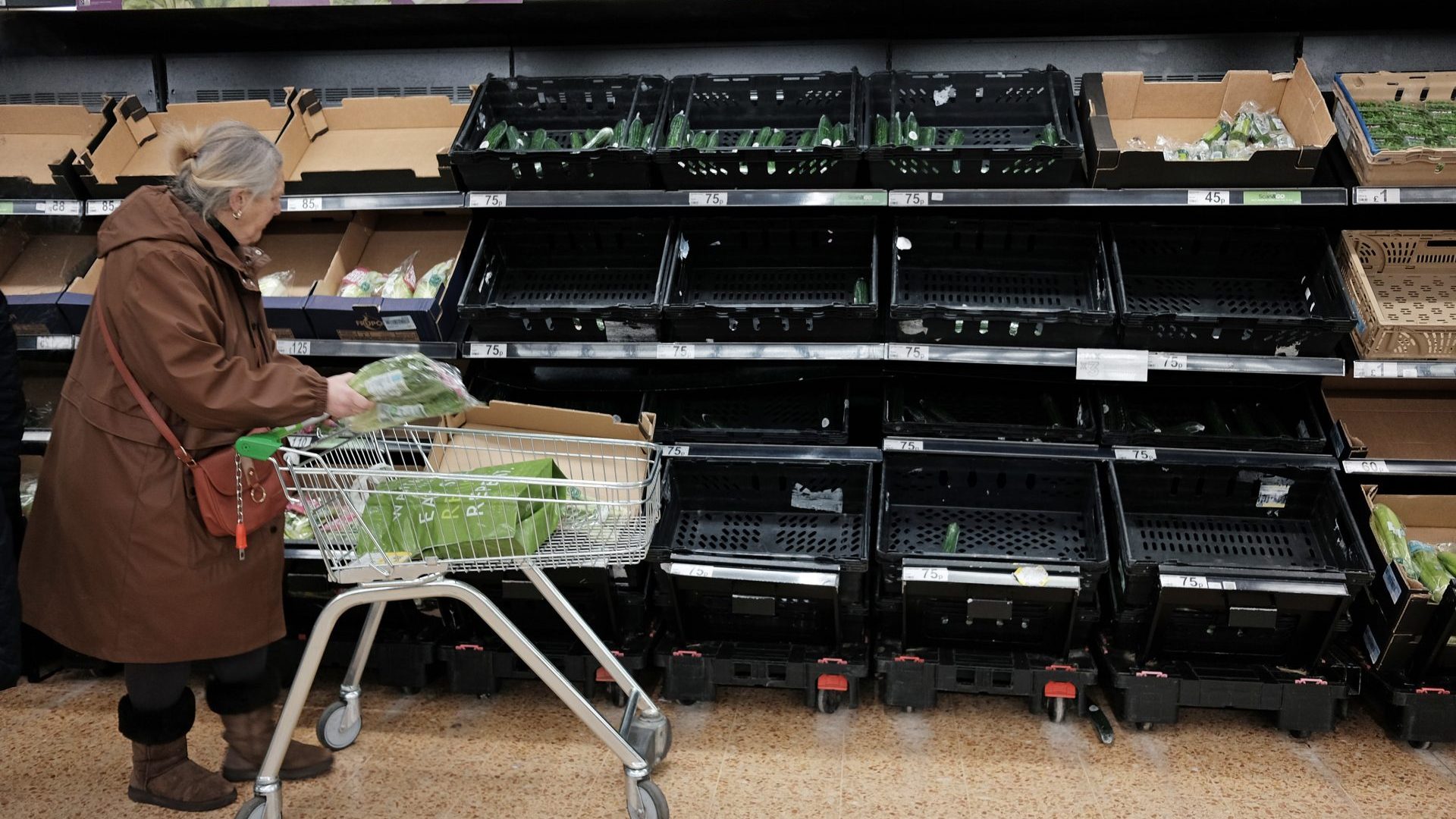I was in Rishi Sunak’s constituency in North Yorkshire when the results of the Tamworth and Mid-Bedfordshire by-elections were announced, and they begged a question.
If Labour could seize those former Tory fortresses, could the “armageddon” predicted by George Osborne also loosen Sunak’s grip on his own constituency of Richmond, in Yorkshire, at next year’s general election? Could the unpopular leader of a spectacularly unpopular government – one that has presided over sky-high taxes, crippling inflation, a collapsing NHS, crumbling schools, and record illegal immigration – become the first sitting prime minister to lose his own seat?
Although numerous national polls indicate a Labour landslide that would sweep Sunak away locally, that prospect seems as unlikely as him winning nationally. Because in the course of two days’ pavement pounding, I found that this affluent rural constituency, flanked by dales and moors, is something akin to a one-party state, in which progressives are an almost endangered species.
And though Sunak is disliked elsewhere in Britain, he is still regarded with some affection and esteem here. However, if Sunak were to quit politics following a crushing defeat for the Conservatives at the next general election, things might begin to look very different.
“They feel like he’s one of us,” says Joe Willis, editor of the Richmondshire Today online news service – and that is quite a statement considering Sunak’s background. He is a southerner of Indian descent, a Hindu who does not drink or eat beef, and a former a Goldman Sachs banker who seems most at home interviewing Elon Musk on stage, representing a deeply traditional agricultural community that is overwhelmingly white and proudly northern.
When first selected to succeed William Hague as Richmond’s Conservative candidate in 2015, Sunak joked that he and his family comprised its entire immigrant community, and that “although I’m not from Yorkshire they were immensely relieved to learn that I was not from Lancashire”. He allegedly had to explain to one farmer that hedge fund management did not involve cutting hedgerows.
Another reportedly commented: “Ah yes, Haguey. Like him. Good bloke. But pale, though. This one has a better tan.” Sunak was dubbed “the Maharajah of the Yorkshire Dales”, and he sits on a stonking majority of 27,000.
Malcolm Warne, a former editor of the Darlington and Stockton Times who serves as Sunak’s constituency communications officer, exuded passive aggression when I asked to talk to him about Sunak’s local popularity. “Talk to ordinary people on the ground,” he said. So I did, and in fairness to Warne I found nobody who said they would be switching to Labour or the Liberal Democrats after voting for Sunak in 2019 – not even those with concrete reasons to do so.
In Northallerton’s broad high street I met a young woman called Sarah Hemming who had just been made redundant by the retail chain Wilko.
“I don’t blame [Sunak]. I blame the company,” she said.
At a nearby food bank which fed 5,000 people last year, up from 3,200 the previous year, a volunteer and former nurse named Ali said she would still vote for Sunak because “who else are we going to vote for? I don’t trust Labour one iota”.
Farming, the backbone of the constituency’s economy, has been hit by wildly fluctuating prices, falling subsidies and uncertainty caused by the government’s post-Brexit antipodean trade deals. But Mark Corner, a farmer who chairs Northallerton’s livestock auctioneers, said Sunak was a good man who had been handed a “poisoned chalice” by his predecessors. “What’s the alternative?” he asked. Labour was an “urban party… they pay lip service to the country vote.”
In Richmond, the constituency’s other main market town, Christine Swift told me she was closing her 25-year-old antiques shop on the handsome cobbled square because rising energy costs had destroyed what remained of her profit margin. The government had done little to help small businesses like hers, she said, but she would still vote Tory, albeit reluctantly. “I don’t think [Labour or the Lib Dems] could do any better at the moment. It’s force of circumstance.”
In September there was a by-election in the North Yorkshire Council ward that includes Kirby Sigston, the hamlet where Sunak owns a £2m Georgian manor with swimming pool, tennis court and union flag fluttering over its lawn. Greenpeace draped it in oil-black fabric in August, and when I drove past, there were two police cars guarding the house.
The Labour candidate in that council election withdrew from the contest. The Lib Dem candidate was a former army officer and engineer who lives in the ward. They campaigned vigorously, but even in these days of national malaise they still lost to the Conservatives by more than 200 votes. “It was disappointing because a lot of effort went into that,” Jane Parlour, a Lib Dem activist, admitted. In the entire constituency, geographically one of the biggest in England, there is just one Lib Dem county councillor, one independent and no Labour. The rest are all Conservatives.
And yet, as prime minister, Sunak certainly does not find himself on the right side of every local issue. In a blistering letter to the prime minister last month, the chairmen of the Yorkshire Dales and North York Moors national parks, much of which fall within his constituency, protested that his government’s plans to relax planning regulations in national parks would cause “irreparable and substantial harm”.
In Richmond, environmental activists are furious about the dumping of raw sewage in the picturesque River Swale which flows beneath the town’s ruined castle. From Richmond’s half-dozen outlets alone there were 371 releases lasting 1,113 hours last year. In July, Sunak promised to support their campaign to clean up the river, but within a month his government announced plans to scrap nutrient neutrality rules designed to prevent new housing developments polluting rivers.
“He doesn’t care about the environment,” Hilary Plews, a retired lawyer who acts as spokeswoman for the Save Our Swale group, told me. “He’s presided over a complete bonfire of environmental legislation.”
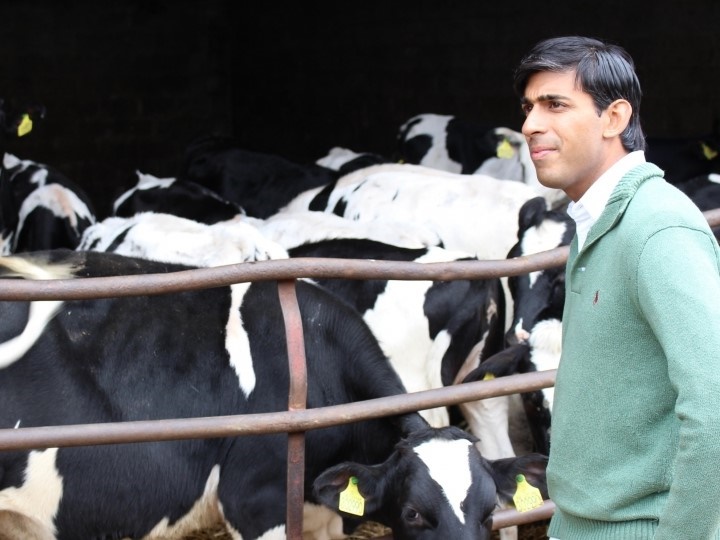
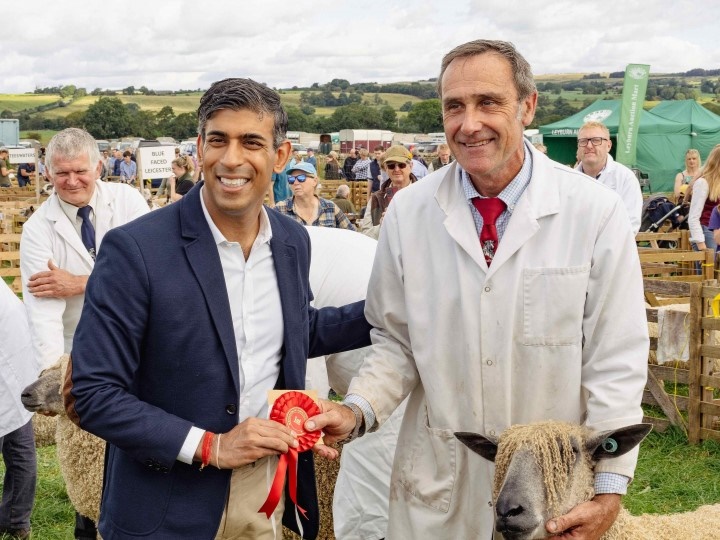
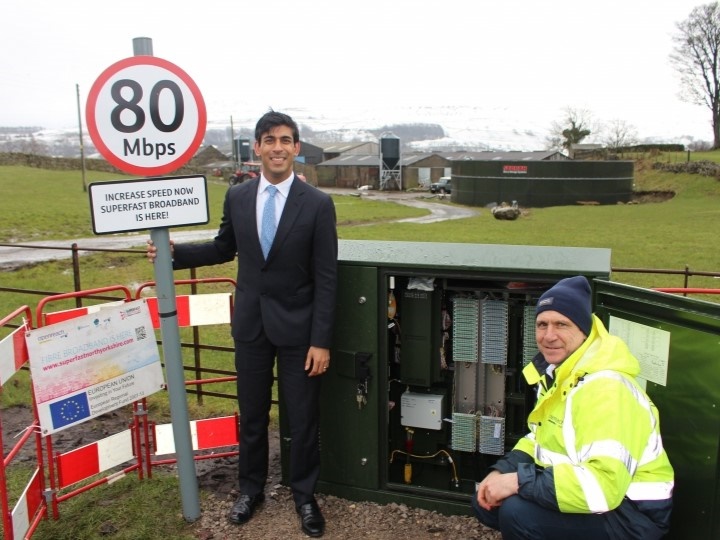
In a single week this summer no fewer than four small independent businesses in Richmond announced they were closing – York House, the Fleece Hotel, the Cross View Tea Room and Ravensworth Nurseries. Days later the prime minister gave an interview in which he appeared to shrug off the problems faced by small businesses. That also went down badly.
But Sunak continues to court his constituency almost as assiduously as he did when he was first running for parliament back in 2015, and with evident success. He employs – apparently at his own expense – a full-time team of three or four in his Northallerton office to respond to constituents’ concerns. He publishes a newsletter, again at his own expense, called Rishi Sunak Messenger, that runs headlines proclaiming “Investment in Our Schools” and “Major Investment in Our Healthcare”.
He backs popular causes like campaigns to improve arterial roads, or to turn the Coast to Coast walk, which crosses the constituency, into a National Trail, though he occasionally comes a cropper. The wealthiest man in parliament, he gave $3m to a private college in California, and £100,000 to his old school, Winchester, but only gave a £10 bottle of House of Commons Merlot for a fundraising raffle to replace Leyburn Primary School’s 15-year-old computers.
Occasionally, courtesy of his position, the prime minister delivers real benefits to his constituency. Last January, nearby Catterick was controversially awarded £19m from his £2.1 billion “levelling-up fund”, though the town could hardly be described as deprived.
Sunak also visits regularly, albeit less than he used to now that he is running the country. Indeed he was supposed to visit the day of the Tamworth and Mid-Bedfordshire results, but was diverted to the Middle East. He makes those constituency visits count. He goes to schools, farms, cattle markets, pubs, fetes, floods, churches, the rugby club, cricket matches – you name it. He meets shop owners, dry-stone wallers and refugees. He will attend several events in a day, always with a photographer in tow. Aides then post the pictures on social media, one by one over a period of days, which gives the impression that he is around more than he is.
His constituents appreciate his apparent interest and accessibility. Malcolm Rowell, whom I accosted at random outside Northallerton’s town hall, told me how Sunak had visited the boxing academy he set up for local youths: “He’s down to earth. He remembers my name. He’s a really nice man.”
Richmondshire Today’s Joe Willis told me: “Whatever his reputation is nationally, people quite like him around here. He’s very energetic, quite charismatic. He puts an awful lot of energy into his constituency. He gives the impression of giving a toss.”
But his critics are sceptical. They say it’s all for the optics. “The feeling is that he just drops in, goes to visit lots of places, has his photo taken and then jets out again,” says Sally Anderson, chair of the Constituency Labour Party. “There’s an impression that he will come along, chuck on a Barbour jacket and take a selfie with a cow, or on a farm, or with nurses in the hospital, and then go again,” says Daniel Callaghan, the Lib Dems’ parliamentary candidate.
Even Willis acknowledges that Sunak “loves a photocall”, adding: “There’s a joke in Richmond that he’ll turn up to the opening of an envelope. His PR is excellent but whether he’s a good constituency MP I don’t know.”
There’s another reason Sunak will not lose, one summed up in a sentiment voiced by several exasperated Labour and Lib Dem activists, though each used a different animal to illustrate their point. “Pin a blue rosette on a sheep and it would win in Richmond,” they complained. “It’s almost like a religion,” one said. “Semi-feudal,” was how another described the constituency.
Richmond’s voters may not be happy with the state of the country, but they tend not to blame Sunak, despite his three-and-a-half years in Nos 10 and 11 Downing Street. They still see the Conservatives as the party of the countryside and they deeply distrust Labour. “There’s a certain fatalism,” says Margaret Whitehead, a retired lawyer who is treasurer of Labour’s Northallerton branch. “They think what happens to the economy is like the weather, not something you can do anything about.”
She added: “You’ve got people who are innately of a conservative state of mind. They’re agricultural. They’re farming. They know the way things have always been done. There’s a sense of rootedness about it which means anything radical, or significant change, is something they go ‘Wow, wait a minute’.”
Labour came second in the 2019 general election with 9,483 votes – 2,493 more than the Lib Dems. But the constituency party seems scarcely up for the fight this time. A leaked document shows it is deemed a “non-priority” seat by the national party. It has yet to select a candidate, and no locals have volunteered despite the allure of challenging a prime minister. Some members say they would serve their cause better by campaigning in neighbouring constituencies where Labour has a chance of winning.
The Lib Dems are a little more energised. They have selected a young candidate, Callaghan, who was raised and educated in Richmond, assisted the former Lib Dem leader Tim Farron, and now works in public affairs in the science and technology sector in London.
He argues that he should be seen as Sunak’s main challenger because there’s a ceiling to the Labour vote in a rural constituency like Richmond and its disgruntled Tories would be more likely to defect to the Lib Dems. “It’s all about building momentum,” he says.
In truth, nobody thinks Sunak will lose, though a lot of unhappy Tory voters may simply stay at home. “It’s inconceivable,” says Willis. “I don’t think there’s a chance he will lose, but he might lose some ground,” says Anderson, the Labour chair. Even Callaghan refrains from claiming he can win, promising only “to give (Sunak) a run for his money”.
And yet, there is a caveat to all this relentless Toryism. Paul Harrison, a Lib Dem town councillor in Richmond, sketched out a much more plausible scenario for seizing the seat, and it goes like this.
The Liberal Democrats come second in the constituency next year, clearly establishing themselves as the Conservatives’ main challenger. Sunak is deposed as party leader following a crushing general election defeat and departs for California, precipitating a by-election that the Lib Dems go on to win while the remnants of the Tory party tear themselves apart.
“You know what the Lib Dems are like at by-elections. They will absolutely home in on this constituency,” said Harrison. “I think that’s the aspiration.”
Indeed, such a by-election would provide Sunak’s successor as party leader with his or her first electoral test. My sense is that Richmond’s Conservative voters are mostly traditional, old-school Tories who liked William Hague and approve of Sunak, but had little time for Boris Johnson and Liz Truss and have little in common with the extreme right-wingers, culture warriors, hardline europhobes and establishment-bashing populists who presently hold such sway over the party.
Were the Conservatives to choose Suella Braverman as their next leader, it is not inconceivable that a constituency which has dutifully voted Tory in every election since 1910 just might provide her with an instant and crushing rebuff.

